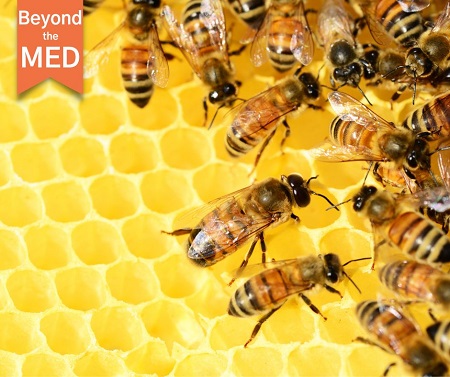
Register with Plumtri!
Register on plumtri as an Individual or as an Organisation to gain access to all of its useful features and remain updated on the latest R&I news, events and funding opportunities.
-
 Welcome to plumtriA platform for Research & Innovation
Welcome to plumtriA platform for Research & Innovation -
 Looking for Funding?Check out the current open calls
Looking for Funding?Check out the current open calls -
 Register today to start receiving our monthly newsletter
Register today to start receiving our monthly newsletter -
 Looking to partner up?Search our list of registered profiles
Looking to partner up?Search our list of registered profiles -
 You have questions on a particular funding programme?
You have questions on a particular funding programme?
World's 1st Vaccine for Honeybees Approved by US Government

The pioneering treatment aims to fight diseases that frequently destroy colonies, which are vital for crop pollination.
The vaccine is particularly aimed at American foulbrood, a bacterial disease that is a major threat to bee populations.
Are honeybees endangered?
The groundbreaking vaccine aims to limit the damage to bee colonies caused by foulbrood.
The disease, for which there is currently no cure, develops from the bacterium Paenibacillus larvae, which can weaken and destroy colonies.
In some areas of the US, the disease has affected one in four hives. Beekeepers are forced to dismantle and burn any infected colonies and use antibiotics to limit the spread.
“It’s something that beekeepers can easily recognise because it reduces the larvae to this brown goo that has a rancid stink to it,” Keith Delaplane, an entomologist at the University of Georgia who worked on the vaccine, told the Guardian.
Although the disease originated in the US, it is now found across the world.
The world’s first honeybee vaccine is a ‘breakthrough’
Now, a pioneering vaccine hopes to quell the disastrous effects of foulbrood disease.
The vaccine was created by Dalan Animal Health, a biotech company based in the US.
“Our vaccine is a breakthrough in protecting honeybees,” said Annette Kleiser, chief executive of Dalan Animal Health. “We are ready to change how we care for insects, impacting food production on a global scale.”
The pioneering treatment has been approved for use by the US Department of Agriculture (USDA).
The body has granted a conditional licence for the vaccine, which will initially be available to commercial beekeepers.
How does the bee vaccine work?
The vaccine functions by integrating some of the foulbrood bacteria into the royal jelly. This substance is then fed to the queen by the worker bees.
The queen absorbs the bacteria and some of the vaccine is transmitted to the ovaries. The growing bee larvae then develop immunity to foulbrood as they hatch.
Research by Dalan concluded that this procedure will lower fatality rates from the disease.
“In a perfect scenario, the queens could be fed a cocktail within a queen candy - the soft, pasty sugar that queen bees eat while in transit,” entomologist Delaplane said. “Queen breeders could advertise ‘fully vaccinated queens.’”
Dalan hopes the groundbreaking treatment will promote the development of vaccines for other diseases affecting bees, including the European strain of foulbrood.
Bees are central to the food pollination system in the US. Hives are often transported around the country to aid the cultivation of productions from almonds to blueberries.
Read further here.
This is a looking Beyond the Med article.
